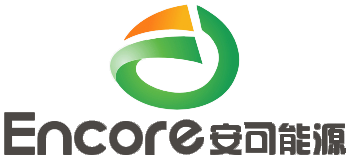- English
- Español
- Português
- русский
- Français
- 日本語
- Deutsch
- tiếng Việt
- Italiano
- Nederlands
- ภาษาไทย
- Polski
- 한국어
- Svenska
- magyar
- Malay
- বাংলা ভাষার
- Dansk
- Suomi
- हिन्दी
- Pilipino
- Türkçe
- Gaeilge
- العربية
- Indonesia
- Norsk
- تمل
- český
- ελληνικά
- український
- Javanese
- فارسی
- தமிழ்
- తెలుగు
- नेपाली
- Burmese
- български
- ລາວ
- Latine
- Қазақша
- Euskal
- Azərbaycan
- Slovenský jazyk
- Македонски
- Lietuvos
- Eesti Keel
- Română
- Slovenski
- मराठी
- Srpski језик
Impact of new national standard of power battery on lithium ion battery industry
2022-11-09
The "2016 Third China Lithium Battery Industry Summit and Data Conference for Top 100 Lithium Battery Enterprises", sponsored by the lithium power big data and co organized by the electric big data and starting point research, with the theme of "discovering trends and grasping the future", was grandly held in Sheraton Grand China Shenzhen Hotel.
More than 400 CEOs and leaders from various subdivisions of the national lithium battery industry chain attended to jointly explore the development trend of the lithium battery industry and grasp the new trend of the lithium battery industry in the future. Through industry interaction, we will promote better collaboration between upstream and downstream of the industry chain, and bring greater breakthroughs and breakthroughs to China's lithium battery industry chain.
At the summit, Dr. Zhou Jianxin, Head of Research and Development of Haisida Power, delivered a keynote speech titled "The Impact of the New National Standard for Power Batteries on the Lithium Ion Battery Industry".
The new national standard of power battery is more systematic. GB/T 31484, GB/T 31485, and GB/T 31486 are evolved from the QC/T 743 standard. The relevant contents of the QC/T 743 standard are re divided, and on this basis, they are upgraded, and three independent standards and specifications that are more consistent with the actual use of electric vehicles are formulated. GB/T 31487 series standards are non equivalent to ISO12405 series standards. The electric performance and safety performance of the two series of standards are separately standardized, which reflects the trend of China's power battery standards gradually toward systematization.
In addition, the application scope of the six new national standards is more extensive, covering four levels: battery cell, module, battery pack and battery system. The product types include hybrid, plug-in/plug-in hybrid, pure electric passenger vehicles and commercial vehicles, which have basically formed a complete standard system of power battery system.
At present, the new national standard test items are more comprehensive. The new national standard GB/T 3148X has established a complete test system for the electrical performance and safety performance of single batteries and modules. Among them, the working condition cycle life, seawater immersion, temperature cycle and low air pressure are the test items not included in the QC/T 743 standard, and these are just the routine test items in the actual use and transportation of batteries, It shows that the new national standard focuses on simulating the actual use and transport performance of batteries, reflecting the new national standard's concern on battery use and transport performance. The new national standard GB/T31487. X has established a complete test system for the electrical performance and safety performance of the battery pack and system, focusing on the overall safety performance of the battery system. For the system level safety protection requirements, the previous national standards are missing. The release of the new national standard GB/T31,487.3 makes up for the standard gaps in this regard.
Dr. Zhou Jianxin pointed out that the new national standard has five major influences:
First, it helps to improve the standard system and improve the quality of products in the market. Due to the policy support for the new energy vehicle industry, the profits in the field of power battery are prominent. In recent years, enterprises entering the battery field have increased significantly. At the same time, the previous policy was relatively loose and the standard system was not perfect, which led to the brutal growth of a large number of battery enterprises. The product level was mixed, and the low-quality and low-cost products undermined the fair competition in the market, laying a potential safety hazard for new energy vehicles. The implementation of the new battery national standard is of positive significance to improve the standard system and improve the overall quality of products in the market.
The second is to promote technological competition and form the survival of the fittest. In April this year, the Ministry of Industry and Information Technology issued the "Supplementary Notice on the Application of Enterprises Meeting the Battery Industry Standards" and the subsequent release of the "Administrative Rules for the Access of New Energy Vehicle Manufacturers and Products", which set a threshold for the power battery industry. By implementing relatively stricter and more demanding national standards, enterprises can be encouraged to devote themselves to technology research and development, and the enterprises with substandard technologies will be eliminated, so as to achieve the goal of guiding technological progress and achieve the market competitive atmosphere of survival of the fittest.
The third is to provide unified measurement standards for enterprises and technical support for supervision and management. The release and implementation of the new national standard provides a unified measurement standard for vehicle enterprises and battery enterprises, clarifies the main technical parameters of power batteries, and provides an important guarantee for the orderly development of the industry. At the same time, it also provides effective quality supervision basis for inspection and quarantine institutions, and provides technical support for better supervision and management of imported and exported lithium ion battery products.
Fourth, it can benefit domestic battery enterprises. With policy support, China's new energy vehicle market has expanded rapidly, and power batteries have benefited significantly. The new national standard is conducive to the development of domestic battery enterprises, enabling China's automobile industry to achieve "curve overtaking".
Fifth, bring opportunities and challenges. The new national standard puts forward stricter requirements on battery and system performance, and greatly improves the requirements on cycle life and safety performance. For enterprises that do not have a deep accumulation of products and technologies, it may be more urgent or difficult to adjust technologies to meet the new national standards. For enterprises with a deep accumulation, the pressure is relatively small
More than 400 CEOs and leaders from various subdivisions of the national lithium battery industry chain attended to jointly explore the development trend of the lithium battery industry and grasp the new trend of the lithium battery industry in the future. Through industry interaction, we will promote better collaboration between upstream and downstream of the industry chain, and bring greater breakthroughs and breakthroughs to China's lithium battery industry chain.
At the summit, Dr. Zhou Jianxin, Head of Research and Development of Haisida Power, delivered a keynote speech titled "The Impact of the New National Standard for Power Batteries on the Lithium Ion Battery Industry".
The new national standard of power battery is more systematic. GB/T 31484, GB/T 31485, and GB/T 31486 are evolved from the QC/T 743 standard. The relevant contents of the QC/T 743 standard are re divided, and on this basis, they are upgraded, and three independent standards and specifications that are more consistent with the actual use of electric vehicles are formulated. GB/T 31487 series standards are non equivalent to ISO12405 series standards. The electric performance and safety performance of the two series of standards are separately standardized, which reflects the trend of China's power battery standards gradually toward systematization.
In addition, the application scope of the six new national standards is more extensive, covering four levels: battery cell, module, battery pack and battery system. The product types include hybrid, plug-in/plug-in hybrid, pure electric passenger vehicles and commercial vehicles, which have basically formed a complete standard system of power battery system.
At present, the new national standard test items are more comprehensive. The new national standard GB/T 3148X has established a complete test system for the electrical performance and safety performance of single batteries and modules. Among them, the working condition cycle life, seawater immersion, temperature cycle and low air pressure are the test items not included in the QC/T 743 standard, and these are just the routine test items in the actual use and transportation of batteries, It shows that the new national standard focuses on simulating the actual use and transport performance of batteries, reflecting the new national standard's concern on battery use and transport performance. The new national standard GB/T31487. X has established a complete test system for the electrical performance and safety performance of the battery pack and system, focusing on the overall safety performance of the battery system. For the system level safety protection requirements, the previous national standards are missing. The release of the new national standard GB/T31,487.3 makes up for the standard gaps in this regard.
Dr. Zhou Jianxin pointed out that the new national standard has five major influences:
First, it helps to improve the standard system and improve the quality of products in the market. Due to the policy support for the new energy vehicle industry, the profits in the field of power battery are prominent. In recent years, enterprises entering the battery field have increased significantly. At the same time, the previous policy was relatively loose and the standard system was not perfect, which led to the brutal growth of a large number of battery enterprises. The product level was mixed, and the low-quality and low-cost products undermined the fair competition in the market, laying a potential safety hazard for new energy vehicles. The implementation of the new battery national standard is of positive significance to improve the standard system and improve the overall quality of products in the market.
The second is to promote technological competition and form the survival of the fittest. In April this year, the Ministry of Industry and Information Technology issued the "Supplementary Notice on the Application of Enterprises Meeting the Battery Industry Standards" and the subsequent release of the "Administrative Rules for the Access of New Energy Vehicle Manufacturers and Products", which set a threshold for the power battery industry. By implementing relatively stricter and more demanding national standards, enterprises can be encouraged to devote themselves to technology research and development, and the enterprises with substandard technologies will be eliminated, so as to achieve the goal of guiding technological progress and achieve the market competitive atmosphere of survival of the fittest.
The third is to provide unified measurement standards for enterprises and technical support for supervision and management. The release and implementation of the new national standard provides a unified measurement standard for vehicle enterprises and battery enterprises, clarifies the main technical parameters of power batteries, and provides an important guarantee for the orderly development of the industry. At the same time, it also provides effective quality supervision basis for inspection and quarantine institutions, and provides technical support for better supervision and management of imported and exported lithium ion battery products.
Fourth, it can benefit domestic battery enterprises. With policy support, China's new energy vehicle market has expanded rapidly, and power batteries have benefited significantly. The new national standard is conducive to the development of domestic battery enterprises, enabling China's automobile industry to achieve "curve overtaking".
Fifth, bring opportunities and challenges. The new national standard puts forward stricter requirements on battery and system performance, and greatly improves the requirements on cycle life and safety performance. For enterprises that do not have a deep accumulation of products and technologies, it may be more urgent or difficult to adjust technologies to meet the new national standards. For enterprises with a deep accumulation, the pressure is relatively small



